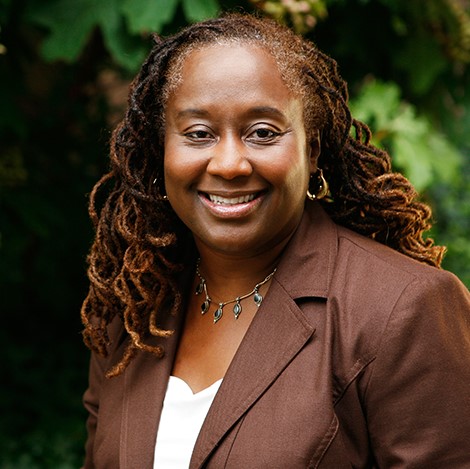Achieving Equity and Cultural Competence
Implementation of Culturally and Linguistically Appropriate Services Standards
for professionals in psychology, behavioral health,
and social work
Presented by Dr. Vetta Sanders Thompson
Videos
The following videos include Part 1 and Part 2 of Dr. Vetta Sanders Thompson’s training, “Achieving Equity and Cultural Competence: Implementation of Culturally and Linguistically Appropriate Services Standards.” This training explores the history and structure of the CLAS standards and discusses the relationship of the standards to existing health policy and statutes, as well as their implications for health equity.
Part 1:
Achieving Equity and Cultural Competence
(Dr. Vetta Sanders Thompson)
Part 2:
Achieving Equity and Cultural Competence
(Dr. Vetta Sanders Thompson)
Description:
Health inequities result in disparities that may reduce individuals’ quality of life. In addition, health disparities adversely affect neighborhoods, communities, and the broader society. It is increasingly recognized that Culturally and Linguistically Appropriate Services (CLAS) are effective in improving the quality of care and services. By providing clear plans and strategies to guide collaborative efforts, the National CLAS Standards provide a blueprint for individuals and organizations to implement culturally and linguistically appropriate services. The session begins with a brief review of the history and structure of the CLAS standards, then transition to a discussion of the relationship of the standards to existing health policy and statutes, and their implications for health equity. The presentation reviews the Principal Standard and covers each standard under the governance, leadership, and workforce, communication and language assistance, and community engagement, continuous improvement, and accountability components of CLAS, and provides examples of implementation strategies, policy and practice considerations, data standards, disaggregation, monitoring and review for accountability.
Objectives:
- Identify and list organizational diversity and cultural competence training needs.
- Implement CLAS language and communication access standards in individual and organizational practice.
- Identify disparities in service use, retention,and outcomes using disaggregated data.
- Utilize community engagement to assist in planning and implementing strategies to address disparities among diverse
recipients of services.
Instructional Level: Intermediate
Date Presented: Thurs., May 27, 2021 9:00am – 12:00pm CDT
Date Training Expires: May 27, 2023
Supporting Material
About the Speaker


Dr. Vetta Sanders Thompson
Vetta Sanders Thompson is the E. Desmond Lee Professor of Racial and Ethnic Studies at the Brown School, Washington University in St. Louis. Dr. Sanders Thompson is the Brown School associate dean for Diversity, Equity and Inclusion and co-director of the Center for Community Health Partnership and Research at the Institute for Public Health at Washington University. She is an associate member of the Siteman Cancer Center, faculty affiliate of the Department of African and African American Studies, and the Interdisciplinary Program in Urban Studies. Dr. Thompson is a licensed psychologist and health service provider, whose research addresses racial identity, the sociocultural implications of race and ethnicity in health and well-being, particularly in the African American community. Dr. Thompson’s funded research has addressed promotion of cancer screening among African Americans, cultural competence in health and mental health research, and she is currently completing PCORI funded work on a measure of stakeholder engagement.
These trainings were funded in whole or in part by funds from the SAMHSA Community Mental Health Block Grant, SAMHSA Substance Abuse Prevention and Treatment Block Grant and state funds sub-granted from the Nebraska Department of Health and Services, Division of Behavioral Health.




